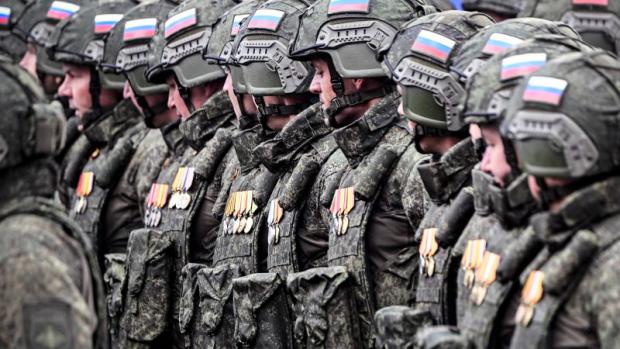
Breaking News
 Fauci's Wife, An NIH Bioethicist Who Never Probed Ethics Of Wuhan Research, Fired
Fauci's Wife, An NIH Bioethicist Who Never Probed Ethics Of Wuhan Research, Fired
 Violent tornado causes catastrophic damage near Lake City, Arkansas, leaving 40K w/out power
Violent tornado causes catastrophic damage near Lake City, Arkansas, leaving 40K w/out power
 The Senate Just Passed Rand Paul's Bill To Block Trump's Tariffs on Canada
The Senate Just Passed Rand Paul's Bill To Block Trump's Tariffs on Canada
 Can Trump Broker a TikTok Sale Before the April 5 Deadline?
Can Trump Broker a TikTok Sale Before the April 5 Deadline?
Top Tech News
 Watch the Jetson Personal Air Vehicle take flight, then order your own
Watch the Jetson Personal Air Vehicle take flight, then order your own
 Microneedles extract harmful cells, deliver drugs into chronic wounds
Microneedles extract harmful cells, deliver drugs into chronic wounds
 SpaceX Gigabay Will Help Increase Starship Production to Goal of 365 Ships Per Year
SpaceX Gigabay Will Help Increase Starship Production to Goal of 365 Ships Per Year
 Nearly 100% of bacterial infections can now be identified in under 3 hours
Nearly 100% of bacterial infections can now be identified in under 3 hours
 World's first long-life sodium-ion power bank launched
World's first long-life sodium-ion power bank launched
 3D-Printed Gun Components - Part 1, by M.B.
3D-Printed Gun Components - Part 1, by M.B.
 2 MW Nuclear Fusion Propulsion in Orbit Demo of Components in 2027
2 MW Nuclear Fusion Propulsion in Orbit Demo of Components in 2027
 FCC Allows SpaceX Starlink Direct to Cellphone Power for 4G/5G Speeds
FCC Allows SpaceX Starlink Direct to Cellphone Power for 4G/5G Speeds
Putin Calls Up 160,000 Men to Russian Army in Latest Conscription Drive, at Crucial Moment...

At a time when the stakes in the Ukraine conflict have never been higher, President Vladimir Putin's decision to call up 160,000 men for military service raises critical questions about Russia's intentions and strategic objectives. This conscription drive, which is one of the largest in recent years, underscores Putin's commitment to expanding the Russian military, a move that may have significant implications for both the war in Ukraine and global geopolitics.
From a libertarian perspective, one must question the ethics and efficacy of such compulsory military service. It is a stark reminder of the power that a centralized government wields over its populace, a power that can be used to further state agendas at the expense of individual freedoms. The fact that these conscripts might be pressured or misled into active combat roles in Ukraine only heightens the moral concerns surrounding this policy.
The timing of this conscription effort, coinciding with reports of North Korean assistance and continued Russian military operations in eastern Ukraine, suggests a strategic calculus by Moscow to bolster its military might at a crucial juncture. Meanwhile, the involvement of the United States in diplomatic efforts to resolve the conflict highlights the complex interplay of international relations and the quest for a peaceful resolution.
Putin's refusal to heed President Trump's call for an immediate ceasefire and his insistence on the lifting of US sanctions before any ceasefire in the Black Sea region reflects the ongoing tensions and the multifaceted nature of the conflict. This situation is further complicated by the upcoming visit of a senior Russian negotiator to Washington, signaling a potential thaw in US-Russia relations under Trump's administration.
In conclusion, the current developments in the Ukraine war and the Russian conscription drive exemplify the challenges of balancing state power with individual liberties. As a political analyst, I remain skeptical of any expansion of military forces that compromises personal freedom and autonomy, reminding us of the ever-present need to "reveal the truth, pursue freedom."

 How Big Tech Plans To Read Your Mind
How Big Tech Plans To Read Your Mind AI, Nature & Legal Personhood
AI, Nature & Legal Personhood


